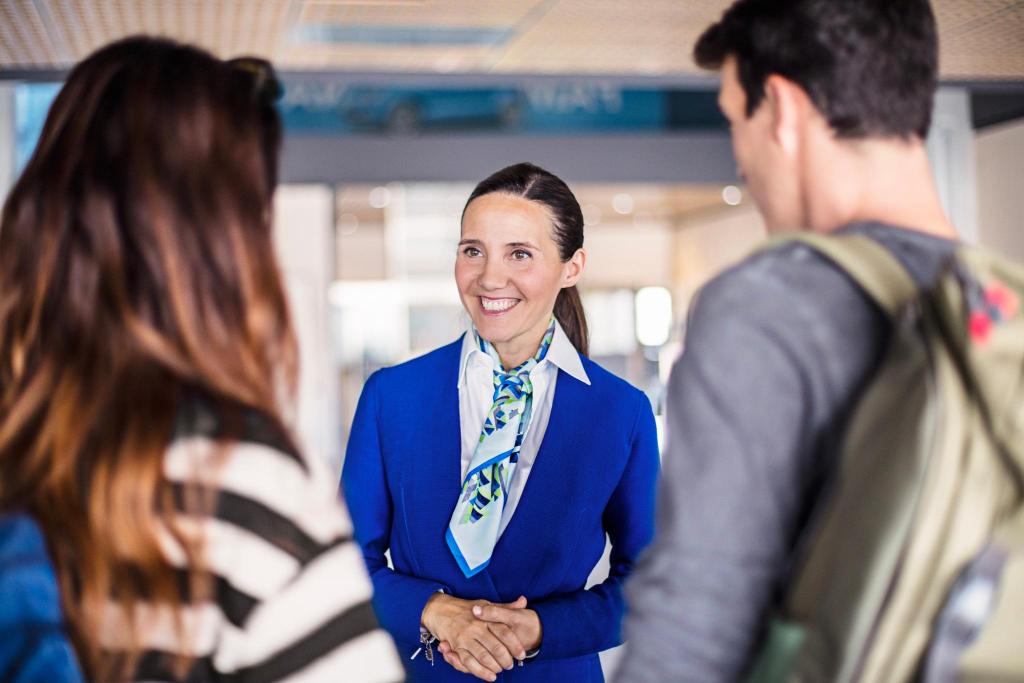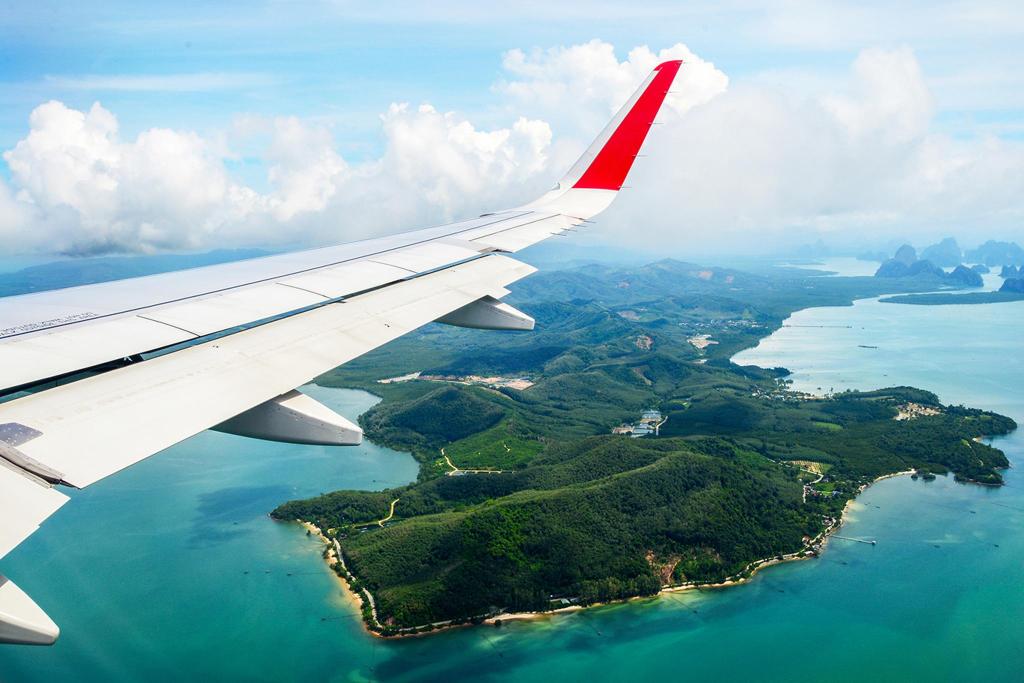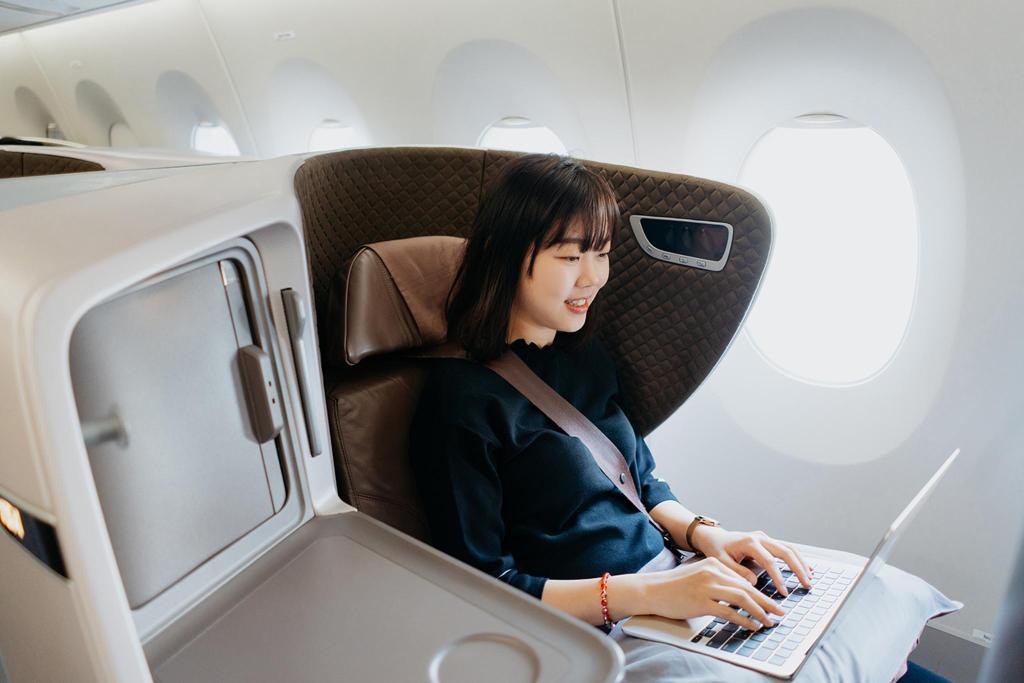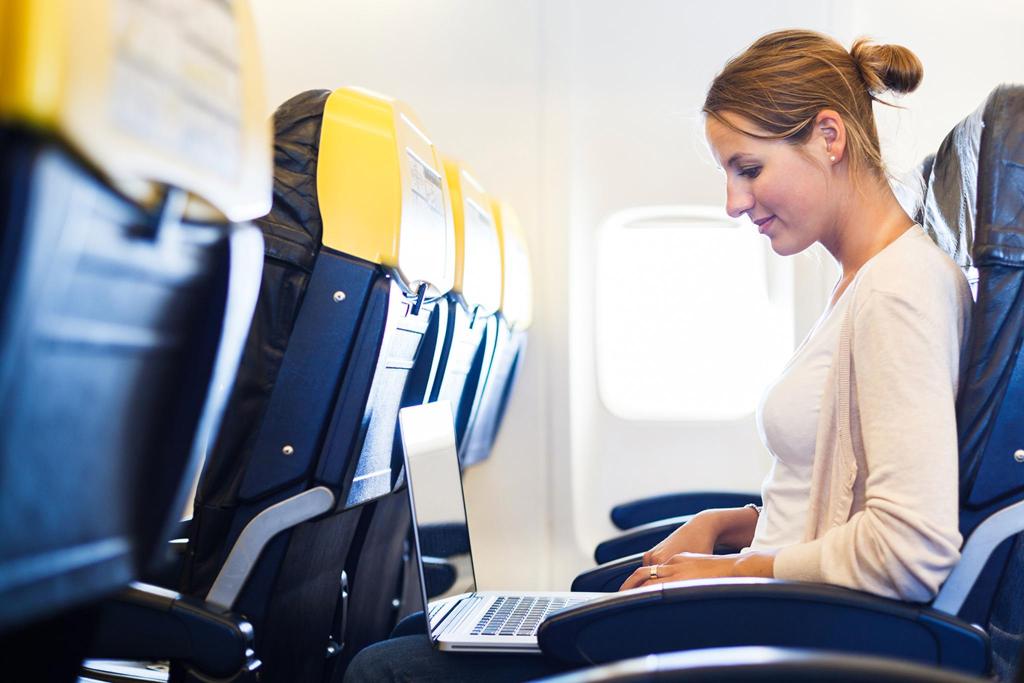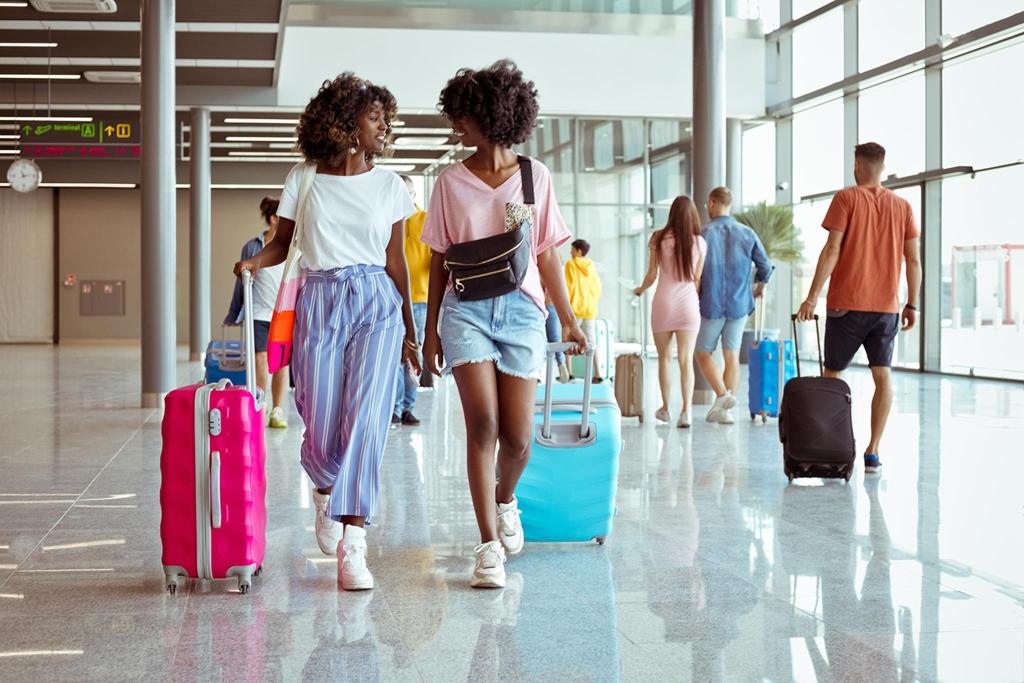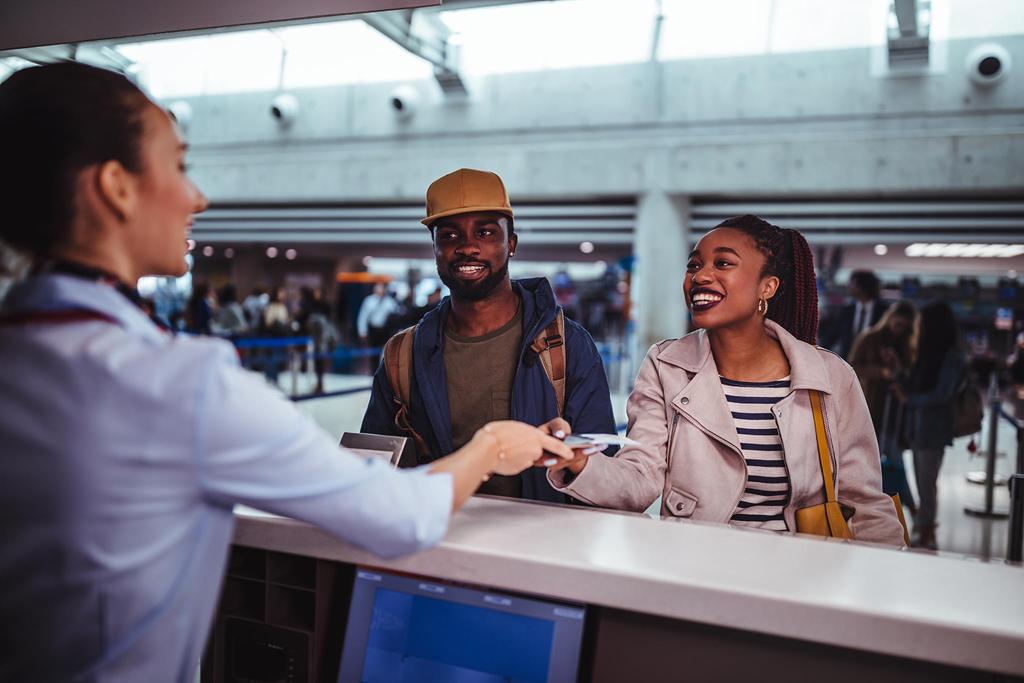
How To Navigate Customs and Immigration
Learn how to navigate customs and immigration like a pro with our top tips:
- How to prepare for your trip
- How to get through customs faster
- Learn common border patrol and customs questions
When you fly internationally, you’ll go through a process called customs and immigration. While it may sound intimidating, knowing what to expect makes your journey more seamless and stress-free. We’ll explain the basics to you in our guide below.
What is customs and immigration?
Customs and immigration are two major aspects of international travel and trade, serving distinct but related functions.
Customs
The authority or agency responsible for regulating the movement of goods into and out of a country, ensuring compliance with national laws, international treaties and taxes.
Immigration
Immigration involves traveling from one country to another, with the purpose to reside there temporarily or permanently. The mandatory process involves one or more aspects of the following:
- Who is allowed to enter the country, often requiring visas or other documentation.
- Screening individuals entering the country and preventing illegal entry.
- Help for individuals seeking to change their immigration status, such as applying for residency or citizenship.
What are customs and immigration checking for?
Here’s what each typically checks for:
Customs checks
- Items that are illegal to import or export, such as drugs, weapons, endangered species, and counterfeit goods.
- Appraise the declared value of goods to assess and collect applicable duties.
- Ensure that goods meet local regulations, including health and safety compliance.
- Detect attempts to smuggle goods to avoid customs duties.
- Verify shipping documents, invoices, and permits to ensure compliance with trade laws.
Immigration checks
- Verification of passports, visas, and other identification to ensure they are valid.
- Determine whether you meet the requirements for entry, such as having the necessary visas, meeting health requirements, and not having a criminal record.
- Screen individuals for possible security risks, including terrorists or those involved in organized crime.
- Ensure compliance with public health regulations, which may include checks for contagious diseases or requirements for vaccinations.
6 tips to get through customs faster

The time it takes to get through customs varies according to airport, season, and time of day. Busy international airports often have longer wait times due to high passenger volumes. Expect major international airports to take 30 minutes to over an hour to clear customs, while smaller airports might take 15–30 minutes.
Fill out customs and immigration forms in advance
Have your customs forms ready and filled out. Declare any items you're bringing into the country to avoid delays or extra scrutiny. Be prepared to answer standard questions.
Book a seat at the front of the plane
Book as close to the front as you can in economy. If your budget permits, consider flying business class. Some airlines provide expedited customs processing for business passengers. It may not be available at every airport, but it’s a useful perk if time is of the essence.
Use MPC (Mobile Passport Control)
In many US airports, you can use the free Mobile Passport Control app. It allows US citizens and Canadian visitors to submit their passport and customs declaration digitally, speeding up the process. Check if your arrival airport supports this option.
Opt for carry-on
If you travel light, with just a carry-on, you can skip waiting for luggage and go directly to customs. This will help you be among the first in line, especially if you have easy access to customs.
Enroll in Global Entry
Enroll in Global Entry (US), or similar programs that allow pre-approved, low-risk travelers to bypass the standard customs line. Global Entry also includes TSA PreCheck, which speeds up the security process on departure.
Avoid peak times
If you have flexibility with your travel schedule, try to arrive during off-peak hours when customs lines are shorter. Research your airport's busiest times to avoid arriving during those hours.
What do you need to declare at customs?

Here’s a list of common items and situations that typically require declaration:
Cash
Cash is helpful to have but large amounts also attract scrutiny. Amounts over a specified limit (often $10,000 USD or equivalent) must be declared.
Goods and gifts purchased abroad
Items purchased while traveling, especially if they exceed duty-free. In most cases, travelers are permitted to bring up to $800 worth of merchandise back to the US without having to pay duty. You must declare all items you purchased and are carrying with you upon return to the United States, including gifts for other people as well as items you bought for yourself.
The US limits the amount of alcohol travelers can bring back to the country with them. You can bring one liter duty-free, and after which a customs duty of 3% per liter is imposed. Tobacco products also have individual limits, typically 200 cigarettes and 100 cigars per person. Anything above that, rather than being taxed, may be confiscated.
Food
Many countries have strict regulations on importing food items, including fruits, vegetables, meats, and dairy products. US customs generally prohibit meat and produce, though there are some exceptions. Certain cured or processed products might be allowed through depending on how they’re packaged. Hard-cured cheese such as parmesan or cheddar are generally acceptable, but soft cheeses such as brie and soft curd cheese and cheese in water (ricotta, feta, etc.) are not. Generally, processed foods (like snacks, candies, and canned goods) are likely to be allowed, but they still need to be declared.
Plants, flowers, and seeds
Plants are suspect because they might carry foreign pests and diseases. They must meet strict conditions and come equipped with official certificates that declare them pest-free. Seeds have similarly rigorous vetting, and flowers must be presented for inspection at customs.
Medications
You may need to declare prescription medications, especially if they contain controlled substances. To be prepared, carry the original prescription and keep medications in their original packaging.
Electronics and high-value items
Expensive electronics (like laptops, cameras, or jewelry) may need to be declared, particularly if they are new or if you are returning with them after purchasing abroad.
Animals and animal products
Many countries have regulations regarding the import of animals, animal products, and related materials (like hides, fur or feathers). These usually require declaration and sometimes specific permits.
Cultural artifacts and antiques
Items of cultural significance or antiques may require documentation or permits for import. For example, if you find a cultural treasure made with ivory, the ivory has to be 100 years old or older and have a certificate that proves it.
Prohibited or restricted items
Items that are illegal or heavily regulated, such as certain types of weapons, narcotics, or counterfeit goods, must be declared. But even declaring them does not mean they will be allowed for import.
By being mindful of what needs to be declared, makes your customs entry smoother.
*The information above is sourced from the US Customs and Border Protections official website in 2024.
What questions does the US border force ask?
When entering the US, Customs and Border Protection (CBP) officers may ask a variety of questions to assess eligibility and compliance. Here are some common questions you might encounter:
General questions
“What is the purpose of your visit?”
This helps the officer understand whether you're visiting for tourism, business, study, or other reasons.
“How long do you plan to stay in the US?”
Officers will ask about the duration of your visit to ensure it aligns with your visa or entry status.
“Where will you be staying?”
Be prepared to provide the address of your accommodations, whether it’s a hotel, friend’s house, or rental.
“What is your occupation?”
This helps officers assess your ties to your home country and your intent to return.
Travel questions
“When did you arrive in the US?”
Officers may ask about your arrival date to cross check your travel itinerary.
“What other countries have you visited recently?”
This question helps identify any potential security risks or health concerns.
“Do you have a return ticket?”
Officers may ask for proof of your intent to leave the US at the end of your visit.
Questions about your luggage and personal items
“ What items are you bringing into the US?”Be prepared to declare any goods, especially high-value items, gifts, or items that may be restricted.
“Do you have any food, plants, or animals with you?”
US customs regulations are strict regarding agricultural products and animals.
“Are you carrying more than $10,000 in cash or negotiable instruments, such as personal checks, cashier's checks, money orders, certificates of deposit (CDs), or promissory notes?”
This question is aimed at preventing money laundering and illegal activities.
Security-related questions
“Have you ever been arrested or convicted of a crime?”
This question helps assess any potential security risks associated with your entry.
“Do you have any connections to terrorist organizations?”
This is part of a broader security screening to ensure national safety.
Other customs and immigration considerations
Prepare yourself: if you have specific circumstances (e.g., a recent name change, unusual travel history), be ready to explain those.

- 可持续发展
- 旅游政策
- 健康养生
- 无障碍设施
- 飞行小贴士
 The 10 Best Airports for Layovers2025年3月28日
The 10 Best Airports for Layovers2025年3月28日 The Ultimate Packing List for Vacations2025年3月28日
The Ultimate Packing List for Vacations2025年3月28日
猜你喜欢
Learn essential airplane etiquette with our guide to the dos and don'ts of flying. Master plane manners, armrest rules and more for a smooth journey.
Do you need a passport to fly to Alaska? Explore everything you need to know about flying to Alaska, including which airlines fly from the US and more.
Have spare $50,000 to burn? Here are the world’s most expensive plane tickets you can buy and a glimpse at what you get for your money.
Our travel experts share which airlines have incredible business-class seats and how they compare.
Stay productive with these expert business travel tips: maximize comfort, utilize onboard amenities, and optimize your travel time for efficiency.
Discover essential airplane hacks from seasoned travelers. Save time, money and stay comfortable with these expert tips for a smoother flight.












